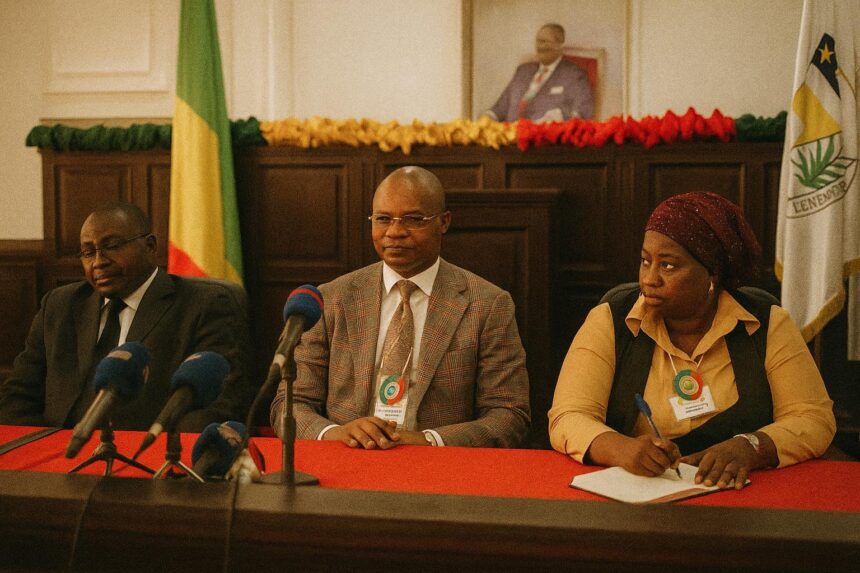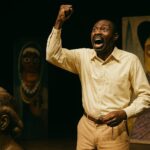Brazzaville Sets the Stage Again
On 19 July the marble halls of Brazzaville’s Palais des congrès will reverberate once more with poly-rhythms from across the continent, signalling the revival of the Pan-African Music Festival after a three-year hiatus. Endorsed by President Denis Sassou Nguesso, the twelfth edition of FESPAM unfolds under the theme “Music and Economic Stakes in Africa in the Digital Age”. The format has been deliberately scaled down, yet the symbolism remains expansive: Congo-Brazzaville reasserts itself as an epicentre of African cultural diplomacy even while navigating a challenging macro-economic climate.
Economics amid Crescendos
Festival Commissioner Gervais Hugues Ondaye acknowledged that public finances are tight, a reality not unique to Congo but felt acutely in resource-dependent economies buffeted by global commodity volatility. By opting for three performance sites rather than the usual dozen, organisers seek fiscal prudence without diluting prestige. The state shoulders the logistical skeleton, while twelve participating nations fund their own delegations, a cooperative model echoing the African Union’s call for shared cultural investment. International observers from the African Export-Import Bank and the Economic Commission for Africa note that creative industries already contribute an estimated three percent to continental GDP, a figure FESPAM hopes to amplify.
Digital Leverage and Intellectual Property
If past festivals celebrated live virtuosity, the 2025 edition deliberately interrogates monetisation in an era where a single viral stream can eclipse ticket sales. Ondaye warns that dematerialised value chains too often enrich offshore platforms rather than local creators, a concern echoed by recent UNESCO reports on Africa’s copyright gap. Congolese start-ups such as Baziks and Muska are scheduled to demonstrate blockchain-enabled royalty tracking, while a Russian delegation offers expertise on neighbouring rights collected through collective management organisations. The debate is no longer whether to digitise, but how to secure equitable revenue before artificial intelligence curates—and possibly replaces—human composition.
Regional Soft Power and Diplomacy
Beyond economics, Brazzaville is wagering on soft power. Hosting orchestras from Senegal to Mauritania, and even a salsa troupe from Venezuela, positions Congo as an intercultural connector at a moment when the continent negotiates its place in an increasingly multipolar order. Diplomats view the festival as a low-stakes venue for high-level sidelines; in 2017, a rumba concert provided the backdrop for discussions that preceded the Congo Basin climate declaration. This year, officials from the African Continental Free Trade Area secretariat will quietly court cultural ministers, hoping to weave intellectual-property provisions into broader trade protocols.
Scholarly Dialogues and Capacity Building
Parallel to evening concerts, forty-four researchers convene a symposium reviewing everything from lineage chants among the Teke to algorithmic recommendations on Nigerian Afrobeats playlists. Papers from the University of Kinshasa argue that digital distribution reduced carbon footprints by forty percent compared with touring logistics, a figure contested by Ghanaian academics who cite data-centre emissions. The absence of the traditional African Music Market, cancelled for budgetary prudence, is partially offset by compact masterclasses where sound engineers coach emerging producers on Dolby Atmos mixing. These sessions answer a wider continental call for skills transfer identified in the AU’s Plan of Action on Cultural and Creative Industries.
Prospects beyond the Festival Week
While FESPAM’s spotlights dim on 26 July, its strategic reverberations are engineered to persist. The Ministry of Culture has drafted a post-festival road map envisioning a Congolese Music Office to centralise licensing, and talks are under way with regional telecom operators for a unified micro-subscription service that channels a higher share to artists. Analysts at the Brookings Africa Growth Initiative observe that such initiatives, if executed, could incubate a scalable model for smaller states lacking Nigeria’s market depth yet rich in talent. In that sense Brazzaville’s musical carnival aspires not merely to entertain, but to prototype a sustainable ecosystem where creativity, technology and governance perform in disciplined harmony.



















